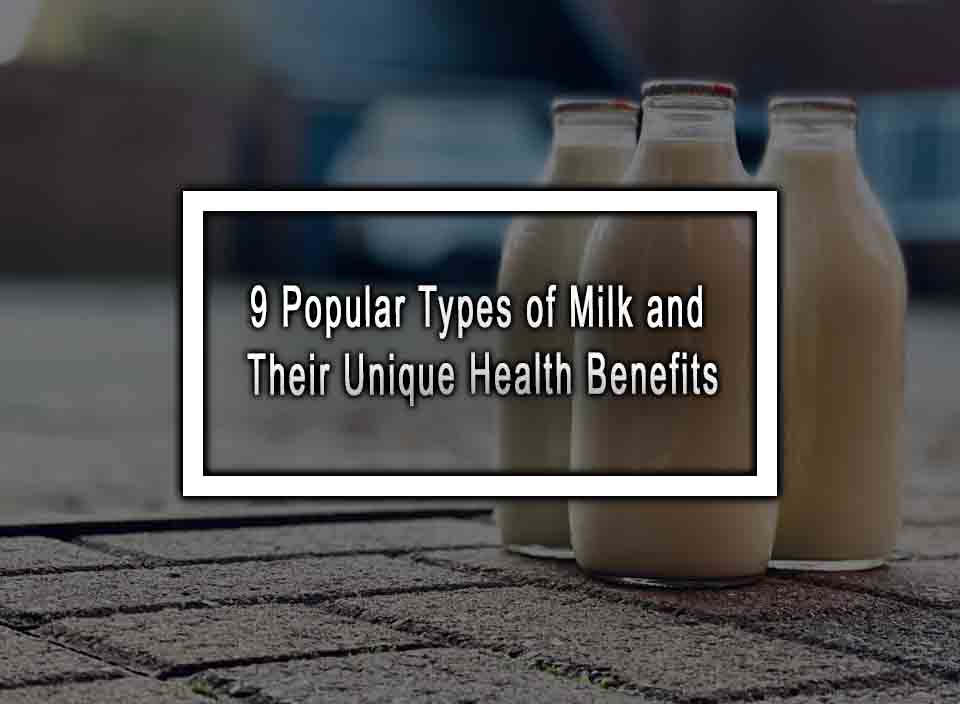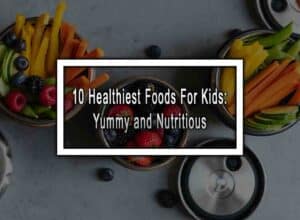Get Ready to Milk the Benefits: A Delicious Dive into Different Types of Milk!
Are you lost in the dairy aisle, trying to figure out which milk will make your morning cereal sing? Or maybe you’re just looking to pour some health-packed goodness into your smoothie? Fear not, because we’ve got the cream of the crop when it comes to milk options! From the classic cow to nutty alternatives, we’re spilling the beans (or, should we say, the milk?) on what each type brings to the table. There’s no need to cry over spilled milk here; with every type you try, you’re flowing into a river of health and taste. So, grab a glass as we explore the world of milk, one sip at a time!
1. Cow’s Milk
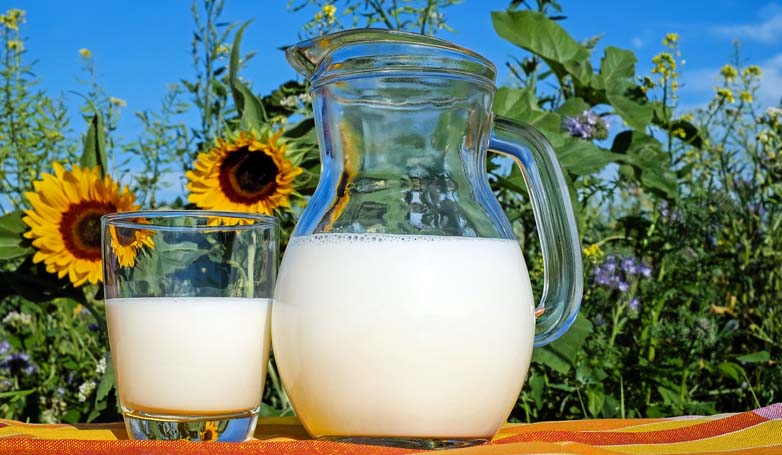
Cow’s milk, a staple in many diets, is a nutrient-rich liquid produced by female cattle. Considered a primary source of calcium, protein, and vitamins like D and B12, this versatile fluid forms an integral part of various culinary practices. Among the types of milk, cow’s milk is known for its creamy texture and is available in different fat content levels, including whole, reduced-fat, skim, and lactose-free options, catering to diverse dietary needs and preferences. Globally, it is extensively consumed directly, as well as used in producing cheese, yogurt, and butter.
2. Soy Milk

Soy milk is a popular alternative to dairy milk, derived from soybeans, a legume rich in protein. It’s a favored choice for those following vegan diets or with lactose intolerance. Soy milk is made by soaking and grinding soybeans, then boiling the mixture and filtering out remaining particulates. It boasts a creamy texture similar to that of cow’s milk and is often fortified with vitamins and minerals. As a plant-based option, it stands out among other types of milk for its high protein content and potential health benefits, such as lowering cholesterol levels.
3. Almond Milk
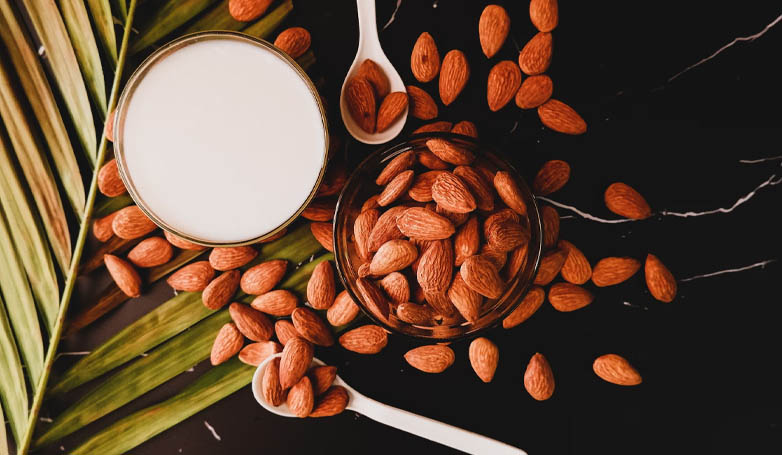
Almond milk is a plant-based beverage derived from finely ground almonds and water. It stands out as a lactose-free, dairy-free, and vegan alternative among types of milk. Its creamy texture and subtle nutty flavor make it a popular choice for those with dietary restrictions or seeking healthier options. Typically fortified with vitamins and minerals, almond milk is low in calories and contains no cholesterol, making it a heart-healthy option. It’s versatile, suitable for drinking on its own, in smoothies, cereals, or coffee, and can be found in both sweetened and unsweetened varieties.
4. Oat Milk
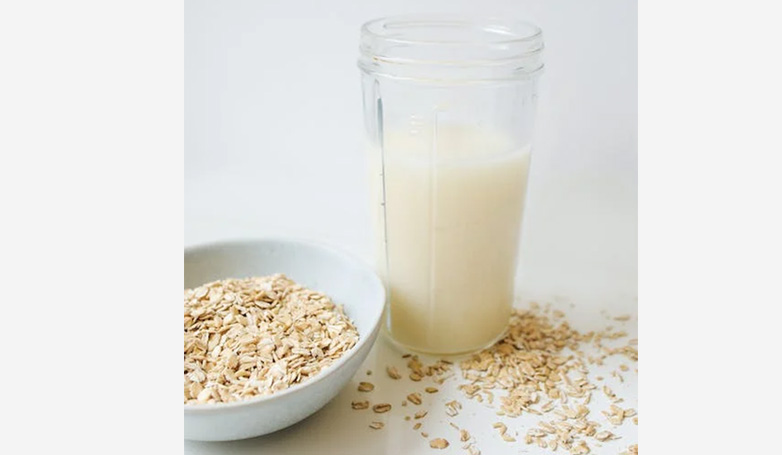
Oat milk is a popular alternative among the various types of milk available for those seeking a non-dairy option. Made from whole oat grains, it is processed by blending oats with water and then straining the mixture to produce a creamy liquid. This milk variant is known for its naturally sweet flavor and is fortified with vitamins and minerals to enhance its nutritional profile. It’s a favorite choice for people with dietary restrictions or those who prefer a milk alternative that is not derived from animals or nuts.
5. Coconut Milk

Coconut milk is a creamy, tropical liquid extracted from the grated pulp of mature coconuts. Unlike coconut water, which is found naturally in the fruit, coconut milk is a processed product. As a dairy-free alternative, it’s a popular choice among various types of milk for those with lactose intolerance or dietary preferences like veganism. Rich in flavor and texture, it’s widely used in cuisines around the world, particularly in Southeast Asian dishes, curries, and soups, as well as in desserts and smoothies. Coconut milk is also a source of important nutrients like manganese and copper.
6. Rice Milk

Rice milk is a dairy-free alternative among the diverse types of milk available in the market. Made from milled rice and water, this milk substitute is often fortified with vitamins and minerals to enhance its nutritional profile. Its naturally mild and sweet flavor, along with a low allergen risk, makes it a favored choice for those with lactose intolerance or allergies to soy and nuts. Rice milk’s light consistency is comparable to that of other milks, although it is less creamy than some of its counterparts.
7. Hemp Milk

Hemp milk is a creamy, nutty alternative to traditional dairy milk and other types of milk, deriving from the seeds of the hemp plant. It’s a versatile, lactose-free option that caters to vegans and individuals with dietary restrictions. Hemp milk is rich in beneficial omega fatty acids and typically fortified with vitamins and minerals. As a sustainable choice, it’s gaining popularity among eco-conscious consumers. Ideal for cooking, baking, or sipping on its own, hemp milk can be found in both sweetened and unsweetened varieties on grocery store shelves.
8. Goat’s Milk

Goat’s milk is a nutritious dairy option among the various types of milk available and is known for its creamy texture and distinct taste. Naturally homogenized, it contains smaller fat globules compared to cow’s milk, making digestion easier for some individuals. Rich in protein, calcium, and potassium, goat’s milk also offers a good supply of vitamins like A and B2. It’s a popular alternative for those with sensitivities to cow’s milk and can be used in a wide range of products, including cheeses, yogurts, and desserts.
9. Cashew Milk

Cashew milk is a creamy, nutritious alternative to traditional dairy milk, emerging as a popular choice among the various types of milk on the market. Made by blending cashews with water and straining the mixture, it provides a rich, buttery flavor and smooth texture that’s ideal for vegans, lactose-intolerant individuals, or anyone looking to expand their milk options. Though lower in protein compared to cow’s milk, cashew milk contains beneficial fats, vitamins, and minerals, making it a versatile and health-conscious addition to beverages, cereals, and recipes.
From Moo to Who Knew: Cheers to Your Health with Every Types of Milk!
There’s a veritable fountain of milk options to explore beyond the classic carton of cow’s milk. Each type of milk brings its own unique flavor and health benefits to the table, making it easy to find one that’s just right for your nutritional needs and taste preferences. Whether you’re after bone-building minerals, heart-healthy fats, or just a tasty alternative to dairy, there’s a milk that’s waiting to refresh both you and your morning oats. Go ahead and pour yourself a glass of wholesome goodness; your body (and your taste buds) will thank you for it!
Types Of Milk And Their Benefits FAQs
Here are the most common questions about types of milk and their benefits.
1. What are the different types of cow’s milk?
- Whole milk: Contains about 3.25% fat and is rich in vitamins and minerals.
- 2% milk (reduced-fat): Has some of the fat removed, containing 2% fat.
- 1% milk (low-fat): Only has 1% fat.
- Skim milk (nonfat): Virtually all the fat is removed; however, it still contains protein and calcium.
2. Why do some people prefer organic milk?
Some people prefer organic milk because it is produced without the use of synthetic pesticides, growth hormones, or antibiotics, which aligns with organic farming principles.
3. Are plant-based milks as nutritious as cow’s milk?
Plant-based milks can be nutritious, but their nutrient profiles vary widely and are often not naturally as nutrient-rich as cow’s milk. They are frequently fortified with vitamins and minerals, such as calcium and vitamins D and B12, to help match the nutritional content of cow’s milk. Always check nutrition labels for specific nutrient content.
4. How do you choose the right types of milk for you?
Choosing the right milk depends on several factors, such as dietary restrictions (lactose intolerance, milk allergy, veganism), health goals (calorie and fat intake, nutrient needs), taste preferences, and environmental and ethical considerations. It’s also essential to consider any nutrient fortifications you may need, especially when choosing plant-based milk alternatives. Consulting with a healthcare provider or a registered dietitian can help in making the most appropriate choice for your nutritional needs.
5. Can I get all the necessary nutrients from plant-based milk?
Plant-based milks are often fortified with nutrients like calcium, vitamin D, and vitamin B12 to match the nutritional profile of cow’s milk. However, the protein content in plant-based milks can be lower, except for soy and pea milk which have higher protein content similar to that of cow’s milk. A varied diet is important when relying on plant-based milks.

